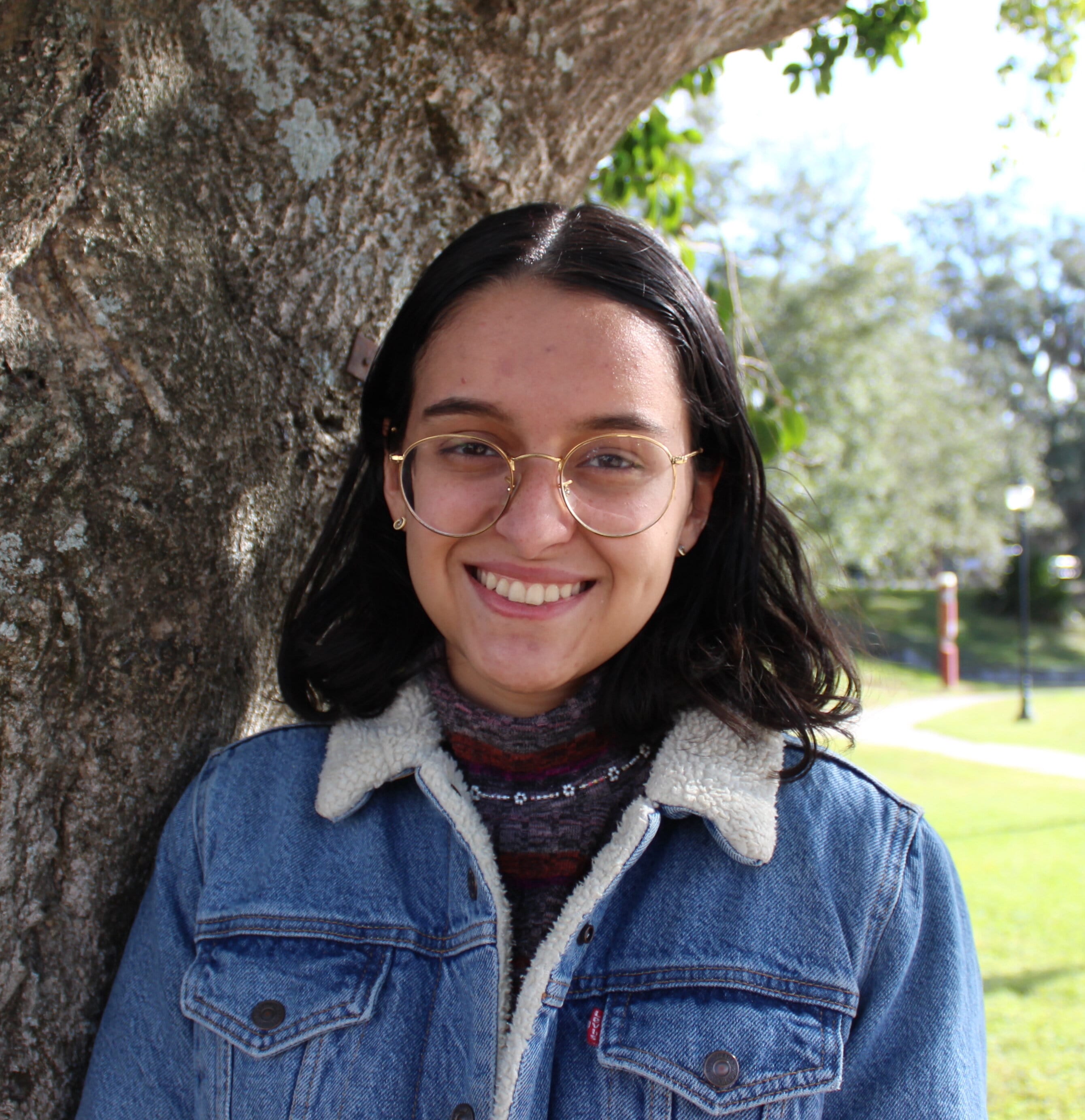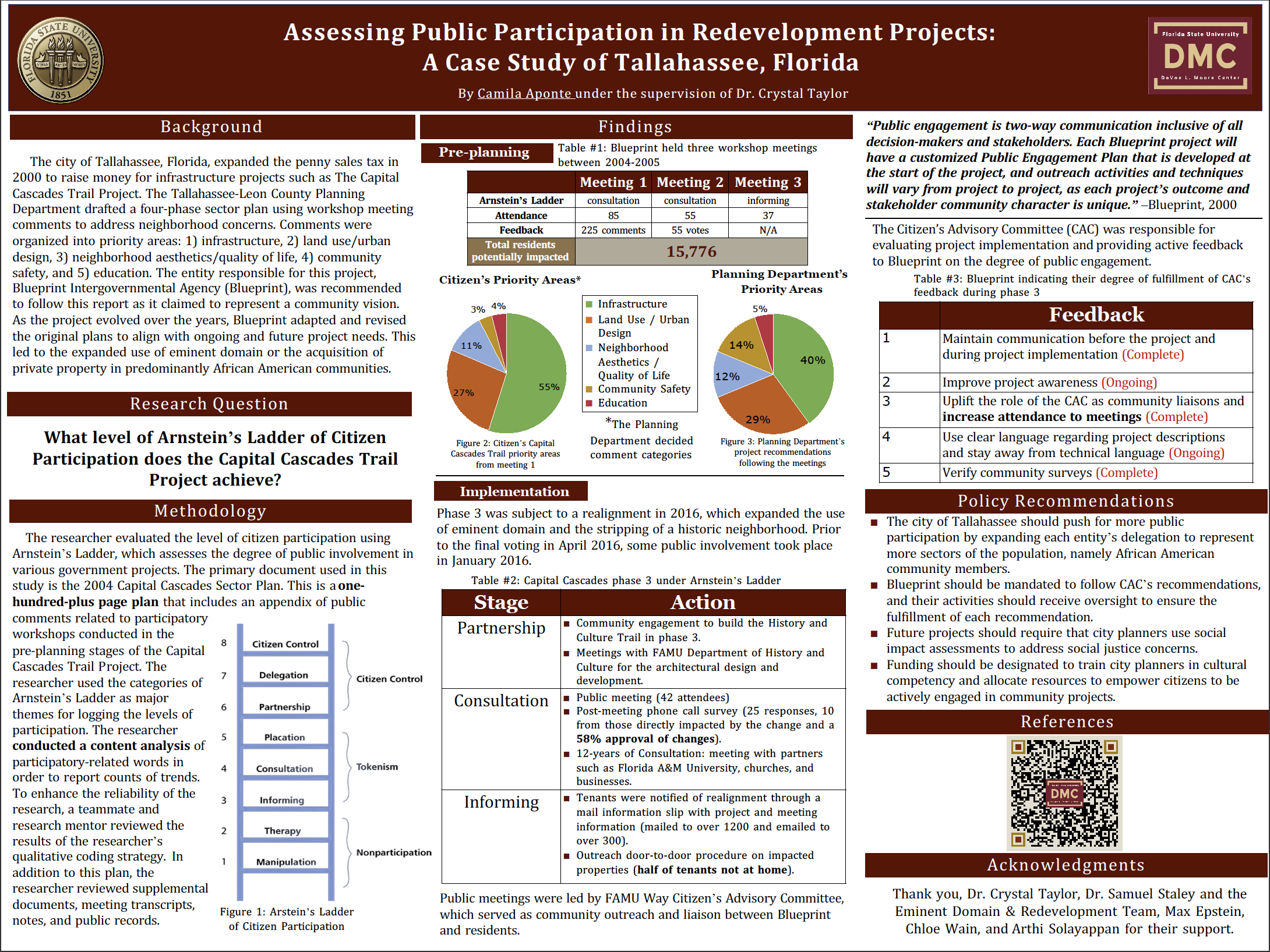Research Symposium
23rd annual Undergraduate Research Symposium, April 6, 2023
Camila Aponte Poster Session 4: 4:00 pm - 5:00 pm/ Poster #69

BIO
I was born in Venezuela and raised between Venezuela, Colombia, and Fort Lauderdale, Florida. My hobbies include reading contemporary novels, playing the piano, and writing. My research interests are education and land-use policy. I am also interested in comparative politics and pressing issues in U.S. foreign policy. My career ambitions include working as a researcher for a federal bureaucracy, working on a public policy think tank, or becoming a political journalist.
Assessing Public Participation in Redevelopment Projects: A Case Study of Tallahassee, Florida
Authors: Camila Aponte, Dr. Crystal TaylorStudent Major: Political Science and International Affairs
Mentor: Dr. Crystal Taylor
Mentor's Department: Devoe L. Moore Center, Mentor's College: College of Social Science & Public Policy Co-Presenters:
Abstract
Public participation in redevelopment projects is a vital tool to address the community’s concerns about any potential adverse effects on a neighborhood. The city of Tallahassee, Florida, is home to a rich history of African-American neighborhoods that have endured constant redevelopment pressures over the decades. The use of eminent domain, or a government's right to acquire private property for public use, has been at the center of the redevelopment discourse as cities seek to modernize. As stakeholder-controlled projects are favored over citizen initiatives and participatory approaches, this study investigates the social impact and the degree of public participation employed during the planning and construction of the Capital Cascades Trail Project. This research uses social impact and participatory tools to analyze public meetings, notes, public records, and project plans to determine the degree of community engagement in the process. Namely, the researcher uses Arnstein’s Ladder of citizen participation–a tool that assesses the degree of public involvement and empowerment in various government projects. Preliminary results may indicate low levels of public involvement, according to Arnstein’s Ladder. As a result of these preliminary findings, this study suggests the following policy recommendations. As community involvement increases, neighborhoods benefit from more equitable outcomes. Future projects should require that city planners use social impact assessments to address social justice concerns. Funding should be designated to train city planners in cultural competency and allocate resources to empower citizens to engage in community projects actively.
Keywords: Public Policy, Redevelopment, Tallahassee, Eminent Domain


